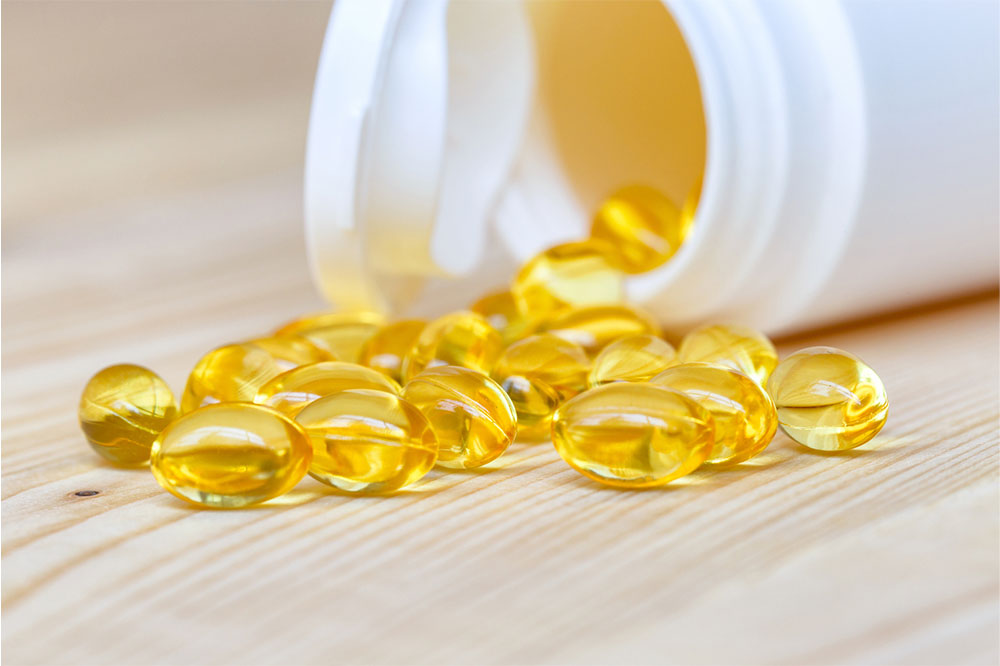
6 supplements for strong bones and overall health
As people age, the absorption of certain nutrients through food becomes difficult. Their bodies might not get the daily requirement of essential nutrients and vitamins. The lack of certain vitamins may lead to fatigue, memory loss, poor bone health, as a person grows older. To prevent or manage such issues, one can rely on health supplements or consume vitamin-rich foods. Listed below are some important health supplements for people aged 40 and above.
Calcium
As we age, we tend to lose this mineral more than we can absorb it. Low calcium levels means brittle nails and bones, which can be more prone to fractures. Calcium also plays a vital role in contracting muscles, regulating normal heart rhythms, and performing optimal nerve functions. A few reliable foods to get your daily dose of calcium are cheese, skimmed milk, and unflavored yogurt. Women in their 40’s and above must consciously consume more amounts of calcium due to the potential onset of menopause.
Vitamin B12
This vitamin is responsible for keeping our blood cells and nerves healthy. It helps create red blood cells and DNA. It is also responsible for developing brain and nerve cells. A lack of vitamin B12 can lead to fatigue, lethargy, weakness, headaches, pale skin, palpitations, breathlessness, depression, and memory loss. For aging adults, it may become difficult for the body to absorb vitamin B12 through foods. One can use vitamin supplements to fulfil their daily B12 requirement.
Vitamin D
Do you often feel pain in the joints or muscles cramps? The pain usually is more prominent when one wakes up in the morning. The joints and muscles may feel stiff, and it could take a while for you to get up and leave the bed. Fatigue and bone and muscle pain are common signs of vitamin D deficiency. Besides its individual contributions, vitamin D is also essential for the absorption of calcium. Vitamin D and calcium in combination are important for bone health. While one may get vitamin D from the sun, one could also include foods like red meat, oily fish, liver, egg yolks, and fortified cereals to their daily meals. Besides, people in their 30’s and 40’s highly rely on vitamin D supplements to manage the symptoms of deficiency.
Folic acid
Women in their 30’s tend to have different biological needs. Some of them opt for folic acid if they’re planning a pregnancy. Folate is an essential part of the prenatal vitamins, and women are prescribed the same throughout their pregnancy. Folate, also commonly known as vitamin B9, enhances memory, improves verbal fluency and improves one’s mood. Foods that are a rich source of folate include broccoli, brussels sprouts, leafy green vegetables, peas, chickpeas, and kidney beans.
Iron
People with an iron deficiency may experience symptoms like fatigue, shortness of breath, weakness, heart palpitations, poor focus, restless leg syndrome, and headaches. Iron is an essential mineral that contributes in the making of red blood cells, which carry oxygen from the lungs to different parts of the body. Women may be more prone to iron deficiency due to blood loss during their menstruation cycle. Furthermore, women after pregnancy may be required to consume more iron-rich foods to make up for the blood loss during child birth. Foods that are high in iron include red meat, poultry, pork, seafood, beans, apricots, peas, and raisins. Always consult your general physician about which iron supplements are safe and in what dosage they can be consumed.
Magnesium
Magnesium is an important mineral that plays multiple roles in the body. The mineral helps regulate blood sugar levels as it’s involved in the process of secreting insulin. Magnesium helps cells use insulin more effectively, which in turn controls the blood sugar levels. Additionally, in growing adults, the bone mineral density could substantially reduce, putting them at a higher risk of fractures and osteoporosis. Magnesium is important for healthy bones and teeth. It is important for people above 40 to rely on foods rich in magnesium. Bananas, pumpkin seeds, almonds, spinach, cashews, peanuts, avocado, whole wheat, and quinoa are nutritious sources of magnesium.
These are some common health supplements that can be used by people over the age of 40. It is best to load up on these vitamins and minerals through healthy food choices. However, if your body fails to absorb them naturally, one can opt for health supplements. Always make sure to consult your doctor before taking any vitamin supplement.




